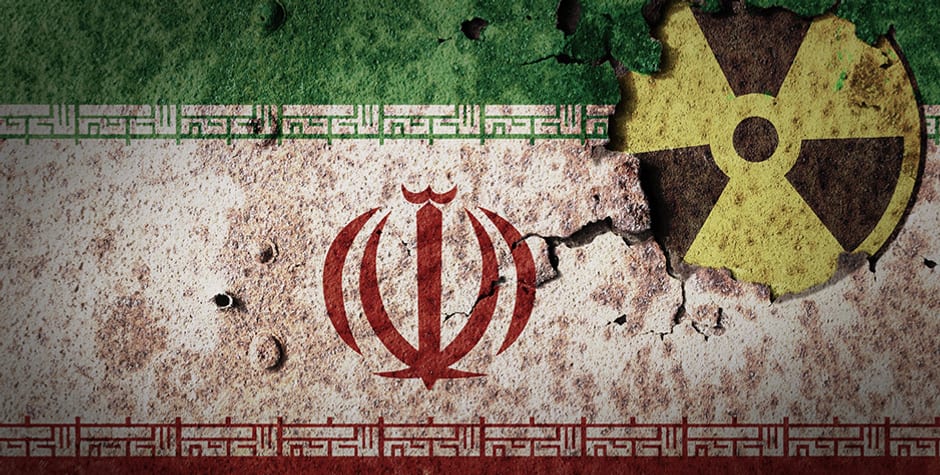Why We Must Prevent Iran's Nuclear Ambitions
Listen tothis article
As America’s former Secretary of State and CIA Director, I’ve studied the Iranian regime’s behaviors and intentions more closely than most. The intelligence is clear and the conclusion unavoidable: An Iran armed with nuclear weapons would pose an existential threat not only to our allies in the Middle East but to global security as we know it.
Iran’s pursuit of nuclear weapons isn’t about enhancing its defensive capabilities. It’s about empowering a dangerous ideology that openly calls for the destruction of Israel, the destabilization of Arab states, and the undermining of American influence. The Mullahs in Tehran view nuclear weapons as instruments of power projection and coercion to achieve their revolutionary aims.
During my time in the Trump Administration, we pursued a policy of maximum pressure precisely because President Trump understood what was at stake. The Obama Administration’s nuclear deal (JCPOA) failed to address the fundamental problem – it merely delayed Iran’s nuclear ambitions while providing immediate financial relief that fueled its terror proxies across the region. Our approach squeezed Iran’s economy, isolated its leadership, and curtailed its ability to fund destabilizing activities through terrorist organizations like Hezbollah, Hamas, and the Houthis. Unfortunately, the Biden Administration re-embraced Obama’s failed approach, which allowed – among other things – Iranian-backed Hamas to launch the attack on Israel from Gaza on October 7, 2023.
The evidence of Iran’s true intentions is abundant. Despite claims of peaceful nuclear ambitions, why has Iran concealed facilities, restricted inspector access, developed nuclear-capable missiles, and continued uranium enrichment far beyond any civilian purpose? The answer is self-evident.
A nuclear-armed Iran would trigger an immediate arms race across the Middle East. Israel, Saudi Arabia, Turkey, and Egypt would feel compelled to develop their own nuclear arsenals, transforming one of the world’s most volatile regions into a nuclear tinderbox.
The proliferation risks alone should give us pause. But the danger extends beyond the possibility of an actual nuclear strike. An Iranian nuclear deterrent would create a protective umbrella for its proxies, emboldening them to take more aggressive actions against our allies and interests. Imagine Hezbollah launching more brazen attacks on Israel, Houthi rebels further disrupting global shipping lanes, or Iranian-backed militias escalating attacks on American forces – all while Iran’s nuclear capability deters meaningful retaliation.
The threat to Israel would be particularly acute. Iranian leaders have repeatedly called for Israel’s destruction. We should take them at their word. A nuclear Iran would possess not just the rhetoric but the capability to threaten Israel’s very existence – a situation Israel cannot and will not accept.
American interests would be directly threatened as well. Iran’s development of advanced ballistic missiles capable of reaching Europe – and eventually the United States – coupled with nuclear warheads would fundamentally alter our strategic response and force costly defensive measures.
The path forward requires clarity and resolve. First, we must maintain and expand economic pressure. A strong and durable sanctions regime must be put into place. Second, we must restore credible military deterrence. Iran must understand that military action to prevent its nuclear capabilities remains a viable option. Third, we must strengthen our alliances with regional partners who stand on the front lines against Iranian aggression. This includes supporting organized opposition within Iran, who have the most to gain from an Iran free of tyranny.
Diplomacy has its place, but only when backed by strength. Any negotiation must secure permanent restrictions on Iran’s nuclear program, address its missile development, and curb its regional aggression. Half-measures and temporary fixes merely postpone the inevitable confrontation while allowing Iran to grow stronger.
Critics will argue that preventing Iran’s nuclear ambitions risks conflict. But history teaches us that accommodating aggressive regimes with revolutionary ideologies only ensures larger conflicts later. The Iranian regime understands only strength and consequences.
Some will say we cannot afford another Middle Eastern entanglement. I would counter that we cannot afford a nuclear arms race in the world’s most volatile region, the emboldening of terrorist proxies, and the undermining of the global non-proliferation regime.
The stakes could not be higher. A nuclear-armed Iran would represent the most significant threat to world peace and stability since the Cold War. Preventing this outcome must remain among America’s highest national security priorities, regardless of which party controls the White House.
For the sake of our children and grandchildren, we must ensure that the world’s most dangerous weapons never fall into the hands of the world’s most dangerous ideologues. The time for resolute action is now, before it’s too late.
